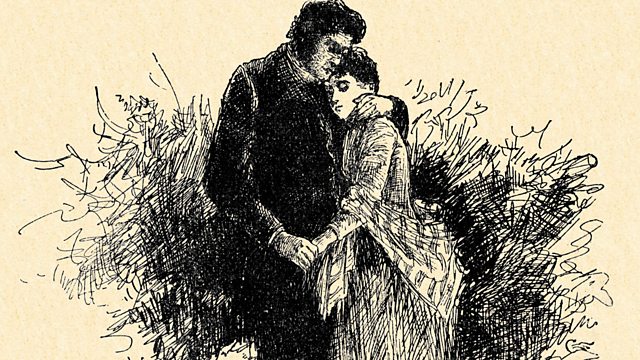Jane Eyre
Melvyn Bragg and guests discuss Jane Eyre by Charlotte Bronte, first published in 1847 under the pseudonym Currer Bell.
The story of Jane Eyre is one of the best-known in English fiction. Jane is the orphan who survives a miserable early life, first with her aunt at Gateshead Hall and then at Lowood School. She leaves the school for Thornfield Hall, to become governess to the French ward of Mr Rochester. She and Rochester fall in love but, at their wedding, it is revealed he is married already and his wife, insane, is kept in Thornfield's attic. When Jane Eyre was published in 1847, it was a great success and brought fame to Charlotte Bronte. Combined with Gothic mystery and horror, the book explores many themes, including the treatment of children, relations between men and women, religious faith and hypocrisy, individuality, morality, equality and the nature of true love.
With
Dinah Birch
Professor of English Literature and Pro-Vice-Chancellor for Research at the University of Liverpool
Karen O'Brien
Vice Principal and Professor of English Literature at King's College London
And
Sara Lyons
Lecturer in Victorian Literature at the University of Kent
Producer: Simon Tillotson.
Last on
LINKS AND FURTHER READING
Ìý
READING LIST:
Juliet Barker, The Brontës (first published 1994; Abacus, 2010)
The Brontës (ed. Christine Alexander), Tales of Glass Town, Angria, and Gondal: Selected Early Writings (Oxford University Press, 2010)
Terry Eagleton, Myths of Power: A Marxist Study of the Brontës (first published 1975; Palgrave Macmillan, 2005)
Elizabeth Gaskell (ed. Angus Easson), The Life of Charlotte Brontë (first published 1857; Oxford University Press, 2009)
Sandra Gilbert and Susan Gubar, The Madwoman in the Attic: The Woman Writer and the Nineteenth Century Literary Imagination (first published 1979; Yale University Press, 2000)
Heather Glen, Charlotte Brontë: The Imagination in History (Oxford University Press, 2004)
Heather Glen (ed.), Jane Eyre: Contemporary Critical Essays (Palgrave Macmillan, 1997)
Heather Glen (ed.), The Cambridge Companion to the Brontës (Cambridge University Press, 2002)
Lyndall Gordon, Charlotte Brontë: A Passionate Life (first published 1994; Virago, 2008)
John Kucich and Jenny Bourne Taylor (eds.), Oxford History of the Novel in English vol 3: The Nineteenth-century Novel, 1820-1880 (Oxford University Press, 2011)
John Maynard, Charlotte Brontë and Sexuality (Cambridge Ìý University Press, 1984)
Lucasta Miller, The Brontë Myth (Vintage, 2002)
Jean Rhys, Wide Sargasso Sea (first published 1966; Penguin Classics, 2000)
Sally Shuttleworth, Charlotte Brontë and Victorian Psychology (first published 1996; Cambridge University Press, 2004)
Patsy Stoneman, Charlotte Brontë: Writers and their Work (Northcote House, 2013)
Marianne Thormahlen (ed.), The Brontës in Context (Cambridge University Press, 2014)
Ìý
Credits
| Role | Contributor |
|---|---|
| Presenter | Melvyn Bragg |
| Interviewed Guest | Dinah Birch |
| Interviewed Guest | Karen O'Brien |
| Interviewed Guest | Sara Lyons |
| Producer | Simon Tillotson |
Broadcasts
- Thu 18 Jun 2015 09:00Â鶹Éç Radio 4
- Thu 18 Jun 2015 21:30Â鶹Éç Radio 4
Featured in...
![]()
Literary Heroines
Literary Heroines
![]()
Victorian—In Our Time
Browse the Victorian era within the In Our Time archive.
![]()
19th Century—In Our Time
Browse the 19th Century era within the In Our Time archive.
![]()
Culture—In Our Time
Popular culture, poetry, music and visual arts and the roles they play in our society.
How Jane Eyre are you?
Take our quiz to find out just how Jane you are?
In Our Time podcasts
Download programmes from the huge In Our Time archive.
The In Our Time Listeners' Top 10
If you’re new to In Our Time, this is a good place to start.
Arts and Ideas podcast
Download the best of Radio 3's Free Thinking programme.
Podcast
-
![]()
In Our Time
Melvyn Bragg and guests discuss the ideas, people and events that have shaped our world.




